Makers with a Mission Winter / Spring 2026

Makerversity has always offered 20% of all memberships for free, as part of our residency programmes – Under 30’s and Makers with a Mission. Here we take a look at the latest Makers with a Mission cohort joining Makerversity for 6 months free membership and support.
Omni Labs Research
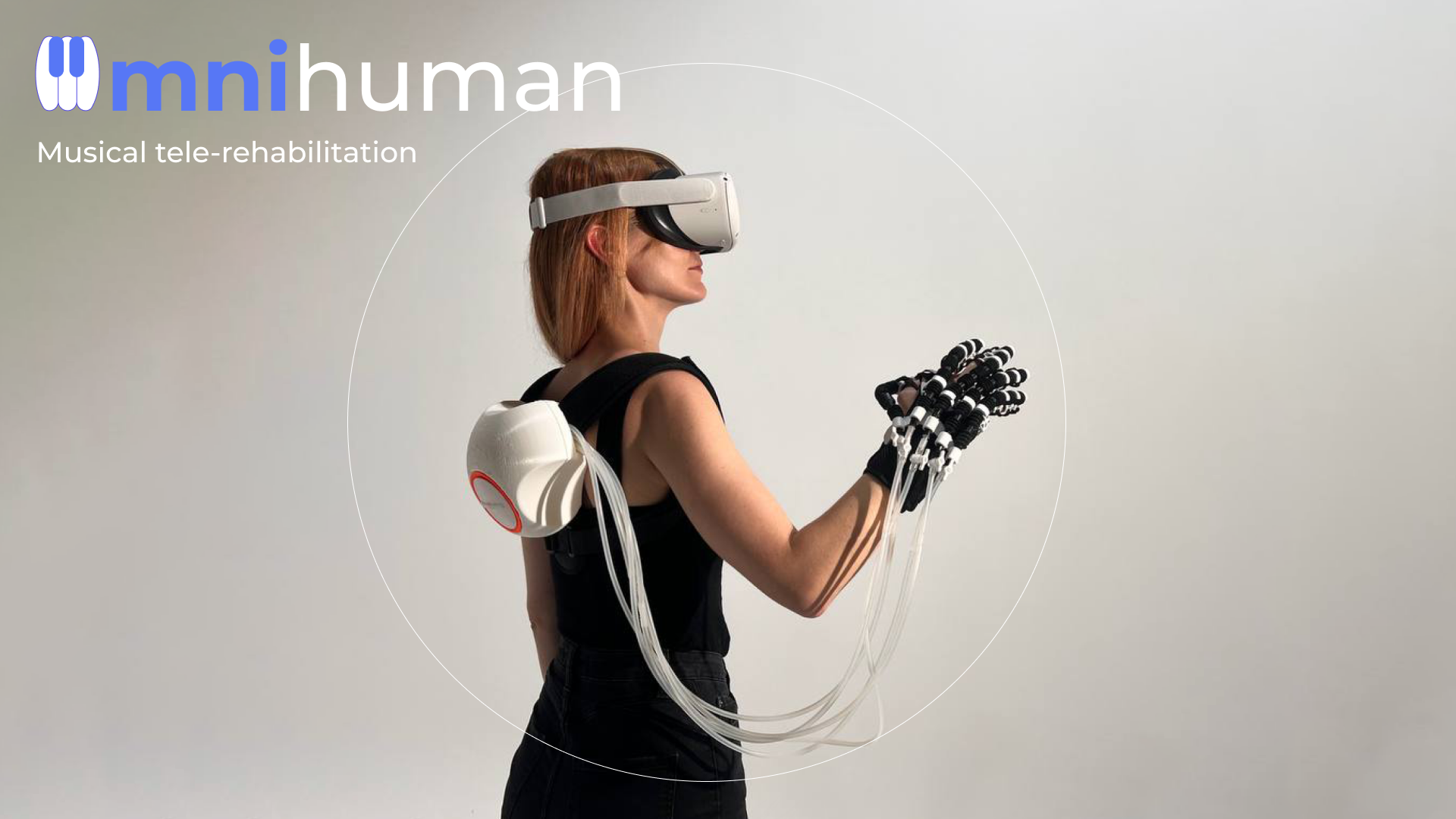
Omnilabs Research develops medical technologies for rehabilitation, designing for a more inclusive world by turning vulnerabilities into strengths. Their mission is to offer care solutions accessible to all, using emerging technologies to help marginalised individuals reintegrate into society. By collaborating across the rehabilitation chain, they ensure a seamless connection between patients, therapists, and caregivers, while giving remote access to hours of exercises that complement scarce in-person appointments. With a multicultural and human-centred approach, Omnilabs Research is shaping the future of healthcare by supporting people in their rehabilitation journeys.
Their first product, Omnihuman, responds to the lack of adherence to fine motor exercises in post-stroke survivors. Up to 80% stop practicing before regaining full motricity, blaming exercises as being too boring, repetitive, and not adaptive. Stroke care is costly, and with limited therapist availability, patients are often left without sufficient support which creates a gap in both recovery and data tracking. Omnihuman offers a personalised and affordable tele-rehabilitation system, combining a soft robotics assistive glove with a mixed reality (XR) headset. By collaborating with clinicians and leveraging music therapy, Omnihuman automatically generates tailored exercises based on both therapist input and patients’ music preferences. This will optimise recovery in an engaging and empowering way.
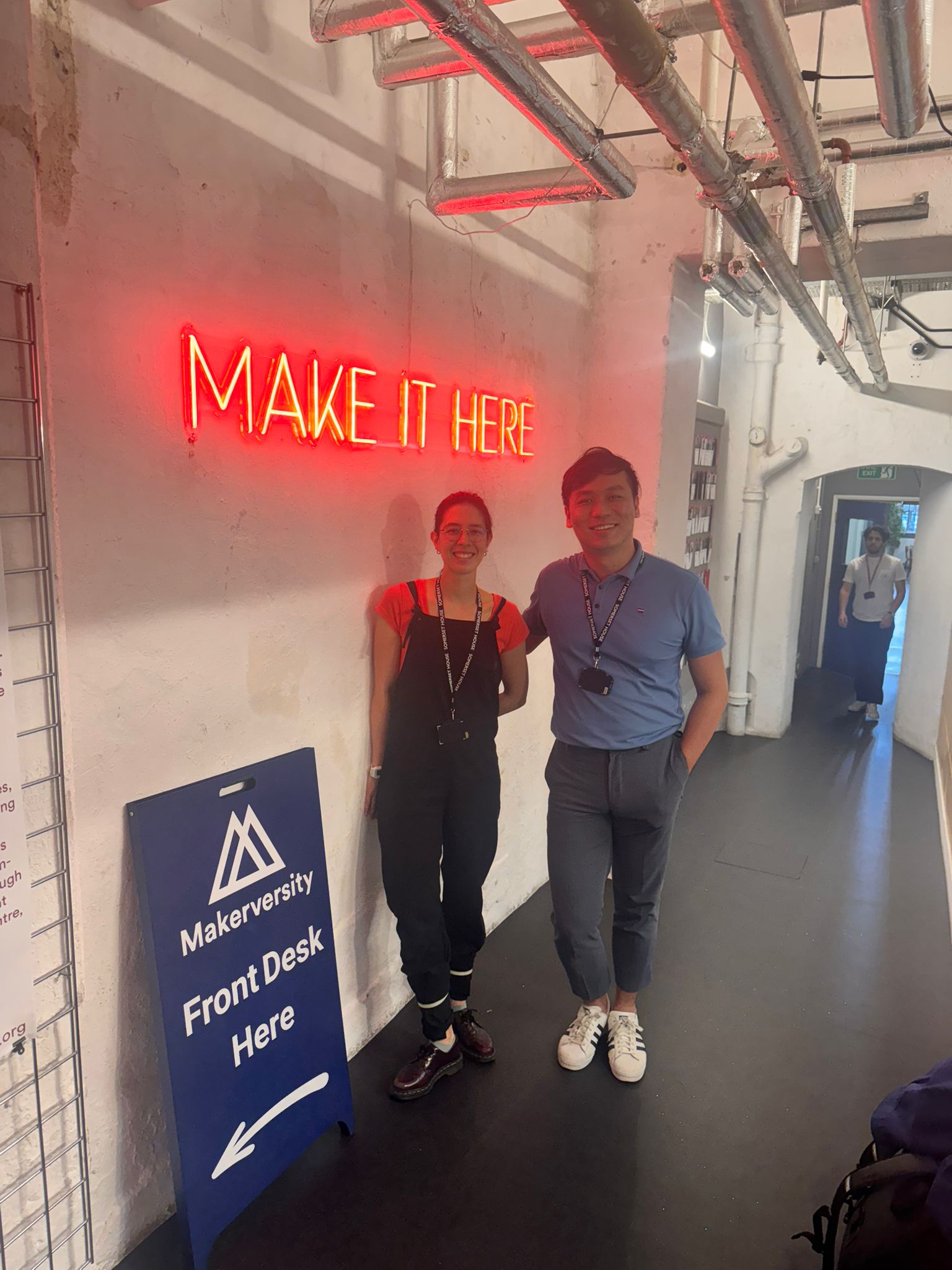
“Joining Makerversity is a wonderful opportunity to develop our company! It gives us access to useful resources, as using equipment for physical and digital prototyping is crucial to keep developing our hardware start-up. Within our time at Somerset House, we are planning to improve Omnihuman’s prototype development, iterating the current version with the feedback of our first round of clinical studies with stroke survivors. You will see us around in the different workshops, building a small batch of our MVP, wearing headsets and clicking in front of us on virtual dashboards. Come chat if you are interested in collaborating and do not hesitate to reach out!”
You can follow Omnilabs Research and their journey here
EarthCode Ltd.
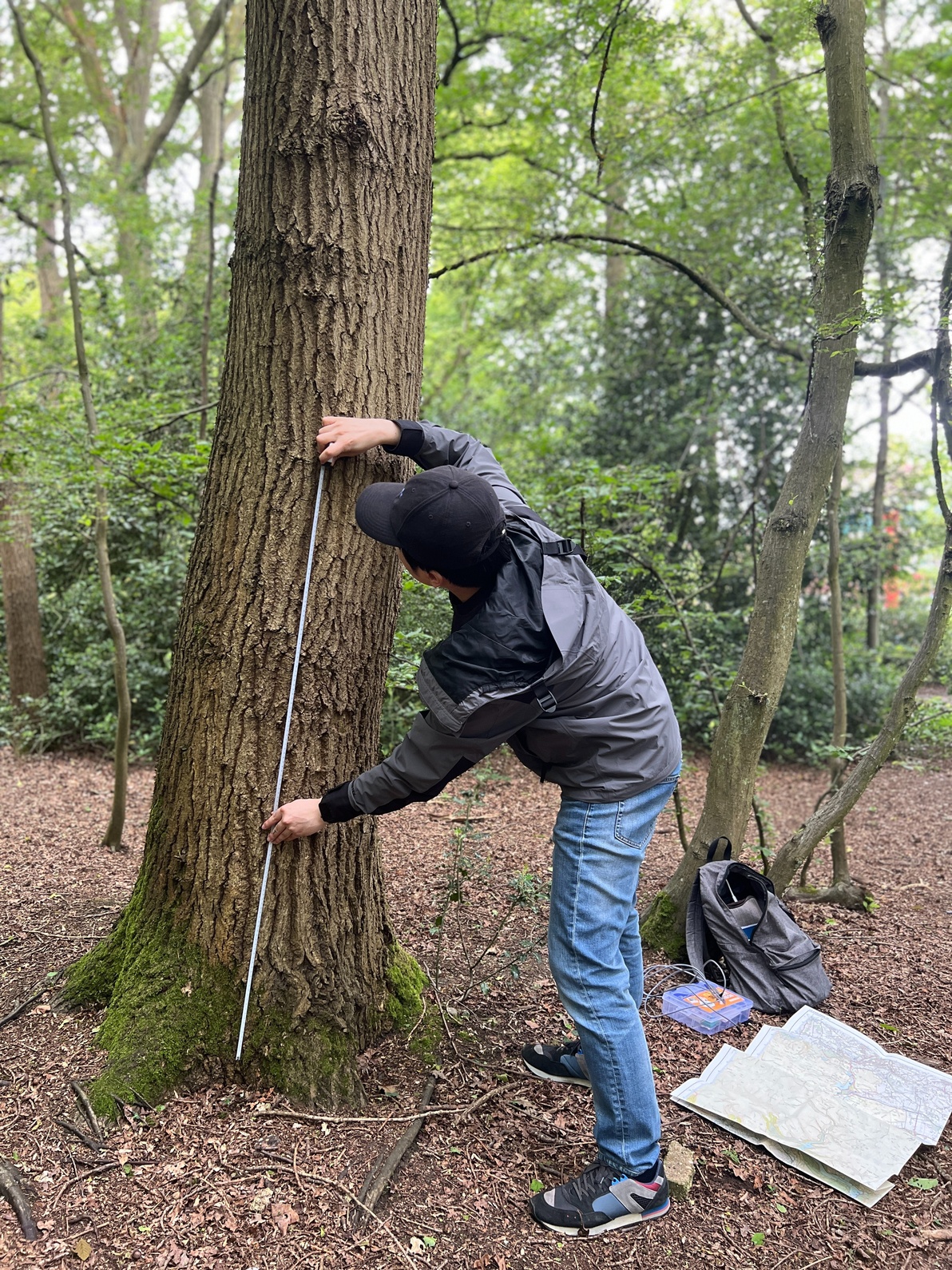
As a design engineer and founder of EarthCode Ltd. a London based start up, Hanju Seo develops tools for in-situ sensing of natural environments. His practice began with the idea of “tree intelligence”, creating devices that could identify and monitor trees directly from their bark without causing harm. This research evolved into projects such as Bark-Code, a system using LiDAR scanning and morphological bark analysis to identify and track individual trees.
Tree-focused sensing remains at the heart of Hanju’s work, but his research has since expanded into agriculture and ecosystem monitoring more broadly. Both forests and farms face similar challenges. Data on growth, health, and resilience is often collected remotely, only at intervals, or at high cost. By placing sensing technologies directly in the field, attached to trees and plants or deployed in soil and canopy environments, he is building low-power, distributed networks that provide continuous, ground-truth data for climate-sensitive landscapes.
A defining feature of Hanju’s practice is his commitment to in-situ sensing. Rather than relying solely on satellites or remote data, he designs systems that live inside the environments they monitor. These combine custom hardware with a lightweight operating system that manages data collection, communication, and long-term deployment in the field.
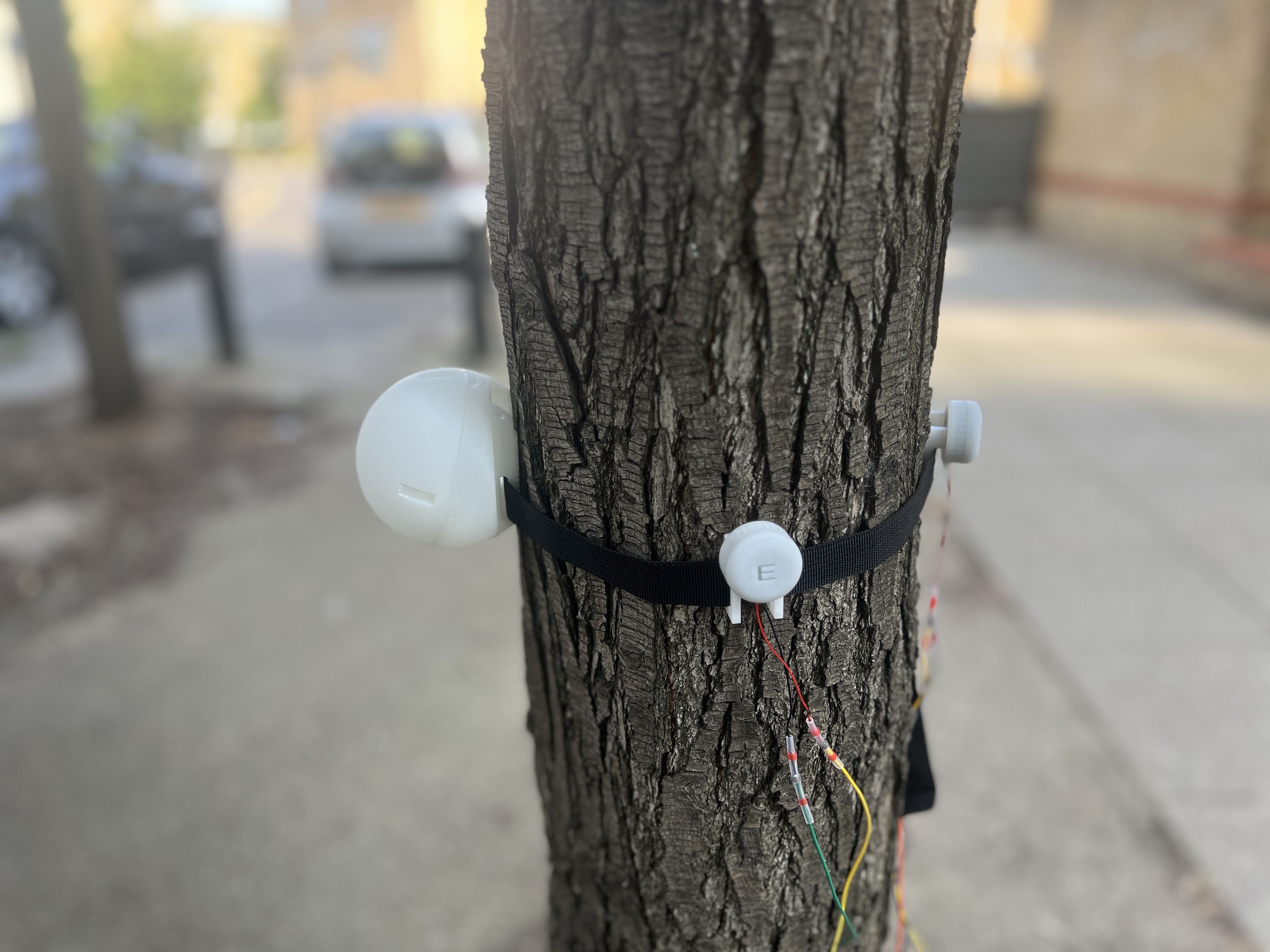
Hanju is currently part of the Makers with a Mission residency at Makerversity, where he is prototyping and refining these devices. During this time, he is testing new modules and developing the software architecture needed for them to function as a cohesive monitoring network.
“Ultimately, my practice is about rethinking how we sense, understand, and design with living systems. Whether in a forest, a farm, or a hybrid landscape, I believe design engineering can help us create technologies that are deeply situated, environmentally responsive, and capable of supporting more sustainable relationships with the land. The residency offers a supportive environment to build, test, and iterate, while also connecting with peers pursuing similarly experimental approaches to design and technology.”
You can follow the work Earth Code are doing here
Saddle Sense

As an advocate for cleaner cities and healthier commutes, Saddle Sense delivers lightweight, low-cost pollution sensors to cyclists, revolutionising urban air quality monitoring. Their sensor seamlessly integrates into your existing commute to provide immediate insights into pollution exposure as well as identify long-term trends. Aggregated measurements from users are combined to produce maps of air quality across London, and this crowd-sourced dataset is publicly available to use and draw insights.
Saddle Sense originated as a dissertation at King’s College London on mobile air quality sensing. Current air quality monitoring relies on stationary sensors, which are sparse and offset from commuter routes. As a result, they struggle to identify hyperlocal pollution hotspots and generally underreport pollutants that cyclists are exposed to. Saddle Sense fills in these gaps to enhance existing monitoring efforts throughout London and provide a more comprehensive view of pedestrian exposure. The result is a wide-spread, dynamic network that leverages the strengths of both mobile and stationary systems. As a community-driven database, Saddle Sense is built for the daily commuters, for those with respiratory conditions, for the health-conscious, and for the citizen-scientists; Saddle Sense is built for London.

Saddle Sense is currently part of the Makers with a Mission residency at Makerversity, where the team is focused on expanding the project’s reach and refining its technology. Over the next six months, they will be growing their user base, submitting funding applications, finalising the sensor prototype, and developing app features such as ride history and map-based pollution summaries. Early adopters are already working closely with the team to test and iterate the hardware and software. Once the prototype is complete, Saddle Sense will move toward CE certification and establish manufacturing pipelines for wider production, balancing the challenge of product development with the pursuit of sustainable funding.
You can check out the Saddle Sense project over on their Instagram here.
Sarrah Ali-Rove
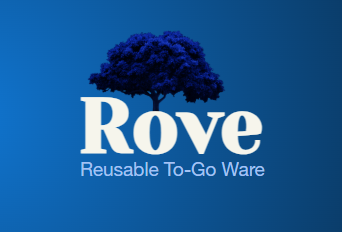
Inspired by the first R in Reduce, Reuse, Recycle, Rove, founder Sarrah Ali, is reimagining takeaway foodware to make eating joyful and sustainable. Every year, millions of single-use food containers, cups, and cutlery are tossed after just minutes of use. With countless takeaway dishes ordered annually in the UK alone, disposable food packaging such as clamshells, plastic-lined paper, and flimsy lids creates a staggering waste problem.
What people use for a quick break can leave a legacy of waste on the environment and, depending on the material, potentially on their health. Rove's flagship collection of reusable to-go boxes, cups, and cutlery features a patent-pending food-safe coating to solve some of the pain points of existing reusables.
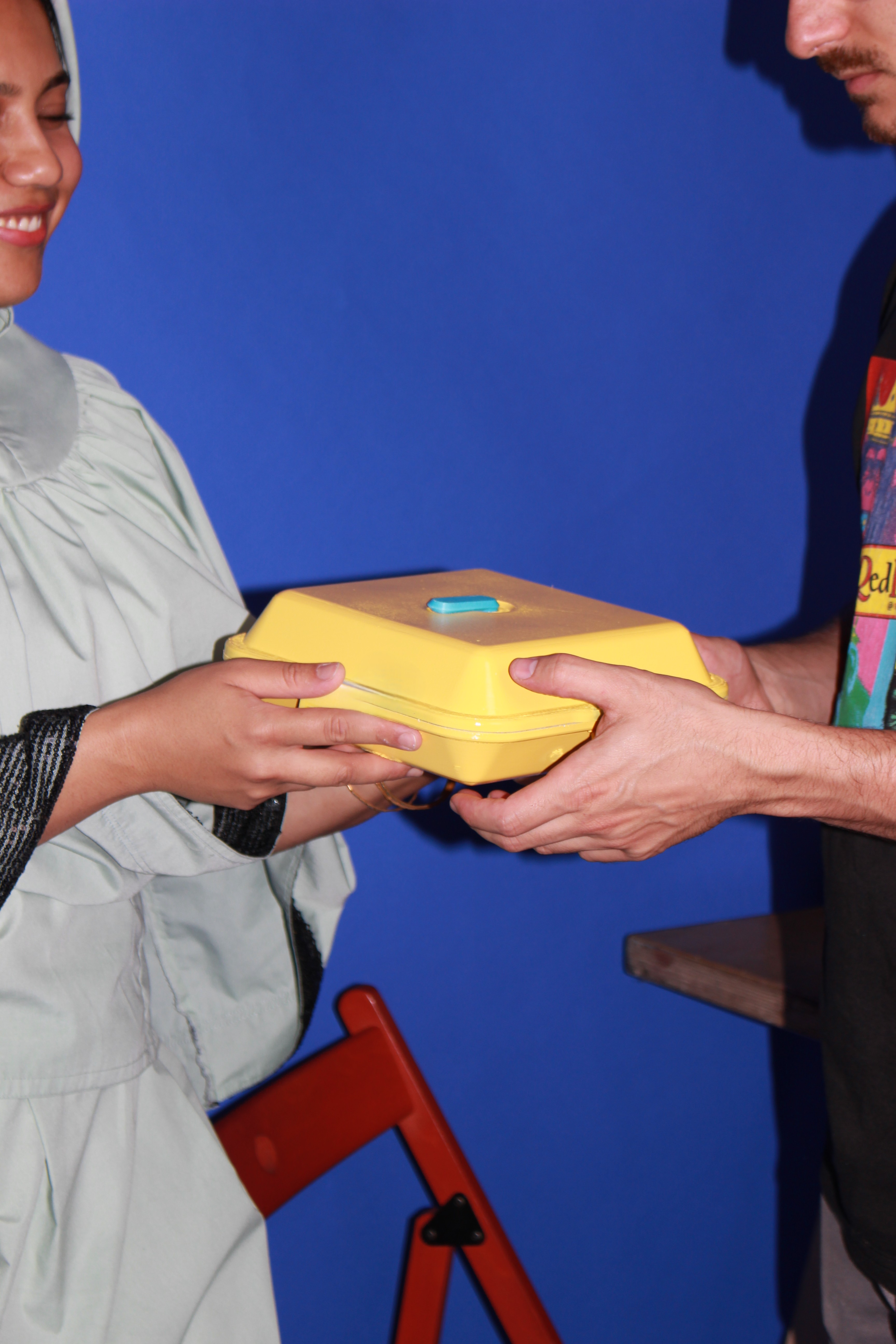
The aim is to produce products that don't simply replace waste but elevate the experience of eating away. Sarrah is currently on the Makers with a Mission residency at Makerversity and will be prototyping, testing, and refining the Rove product alongside a community of makers committed to reducing the carbon footprint of existing systems. By blending beauty with practicality, Rove is targeting institutions such as schools, workplaces, hospitals, and corporate cafeterias to make an impact at scale.
You can follow along Roves journey via their instagram here.

.svg)
.svg)
.jpeg)



.svg)



.png)

